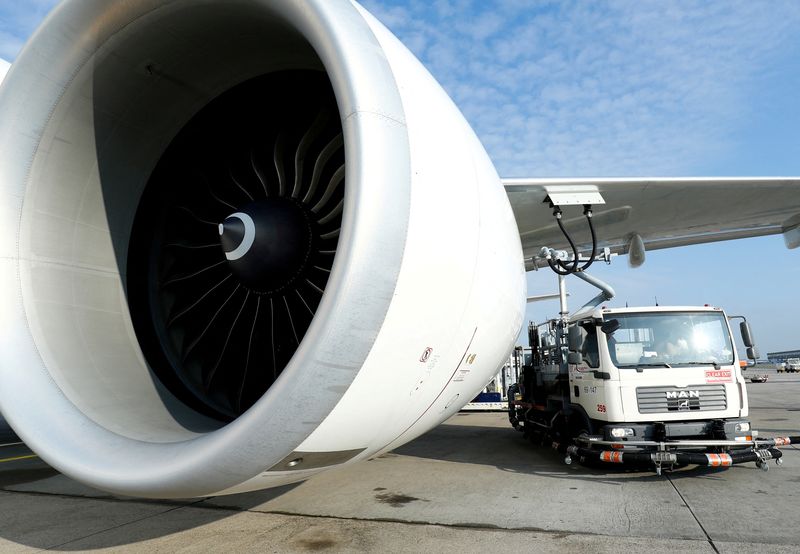By Joanna Plucinska and Conor Humphries
DUBLIN (Reuters) - Greener fuel is the only way airlines will meet strict global carbon emission targets, executives meeting in Dublin this week agreed, but there's little consensus on who should foot the hefty bill to ramp up production.
Sustainable aviation fuel (SAF), which uses feedstocks like cooking oils to reduce emissions by up to 80% from conventional fuel, is seen as the carbon saviour for an aviation sector often cast as a villain in the fight against climate change.
But the nascent industry makes up less than 1% of fuel used and costs between three to five times more than traditional jet fuel.
That has stirred a debate whether governments, airlines or oil producers - or a combination of all three - should fund the expansion of production required to hit a proposed European Union target of 20% by 2035.
Aengus Kelly, chief executive of lease giant AerCap, said SAF was the only option, but cited an estimate that the transition could require investment of $1.5 trillion over 30 years.
"That's an extraordinary cost," he told the Airline Economics conference, one of a pair of annual events that bring together the world's largest aircraft owners.
"Government won't do it all. That's not going to happen."
Willie Walsh, head of airline industry body IATA, told the conference airlines shouldn't expect traditional oil producers to meet the industry's needs.
"There has to be greater sharing of the burden to ensure that the industry, everybody can make it to net zero," he said.
Consumers aren't willing to fork out either, with many airlines saying less than 5% of customers fund carbon offsets or SAF surcharges they offer.
Many complain that action is pointless until huge emerging market emitters like China and India agree to play their part, one executive said.
SPEEDING UP
Some airlines called on the EU to do more to catch up with the United States, where the Inflation Reduction Act is spurring spending.
British Airways owner IAG (LON:ICAG) made its first major investments in SAF in the United States, including a commitment to buy 220,000 tonnes from a Mississippi biorefinery in 2021, because U.S. policy is "much more joined up," said Leigh Hudson (NYSE:HUD), IAG's sustainable fuels and carbon manager.
With the right policy support, 30 SAF plants could be built across Europe over the next eight years, she said in an emailed statement.
Ryanair in December agreed to buy its SAF from Shell (LON:RDSa) in an early step towards its target of powering 12.5% of flights with the fuel by 2030.

While it is too soon to say how realistic the 2030 targets are, reaching 2% by 2026 was a vital first step, its director of sustainability Thomas Fowler said.
"If they get the first 2% over the line, then we'll have a good sense," he told Reuters.